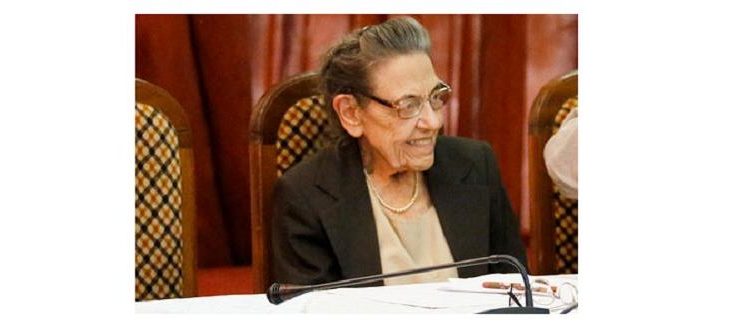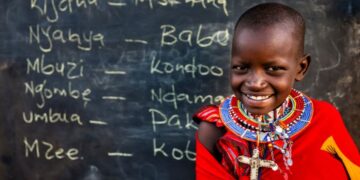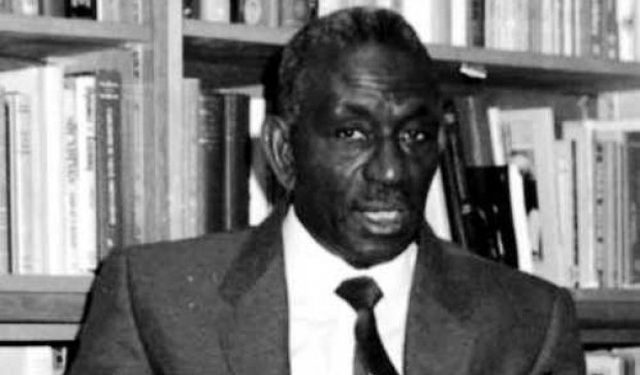The Senegalese historian, anthropologist, Physicist and Pan-Africanist political leader Cheikh Anta Diop was considered a controversial fellow because of his works and concepts.
He studied the human race’s origins and also pre-colonial African culture. Some of his works are said to have posed questions concerning cultural bias in scientific research. The works were criticised and labelled as revisionist and pseudohistorical.
Cheikh Anta Diop wrote so many books which were published in French. They were all dedicated to African self-empowerment. One of his greatest achievement was organising the first Pan-African student congress while he was studying in Paris.
Diop committed himself to discover and enlightening others about the richness of the African culture and history.
Cheikh Anta Diop’s Biography
Cheikh Anta Diop was born in Thieytou Diourbel Senegal on December 23, 1923. He was raised in a Muslim Wolof family. His parents were part of the peasant class and also the African Mouride Islamic sect, the only independent Muslim fraternity in Africa at that time.
He attended both Koranic and French colonial schools. Diop obtained the colonial equivalent of the metropolitan Baccalaureat in Senegal before he travelled to Paris to earn his degree.
Diop initially travelled to Paris to study higher Mathematics but he switched to Philosophy instead. He gained his first degree in Philosophy in 1948 at the age of 25. He went further to enrol in the faculty of sciences and earned two diplomas in Chemistry at the age of 27.
Throughout his stay in Paris, he studied History, Egyptology, Physics, Linguistics, Anthropology, Economics and Sociology.
Cheikh Anta Diop’s Involvement in Politics
Cheikh Anta Diop became actively involved in politics since he arrived in Paris. He was part of an African nationalist organisation, in the Rassemblement Démocratique Africain (RDA), led by Felix Houphouet-Boigny.
Diop was the general secretary of the RDA students in Paris from 1950-1953. In 1951, the first post-war pan African student congress was organized under his leadership.
The movement played an important role in restoring the African national consciousness concerning slavery and colonialism.
That same year, Cheikh Anta Diop did not relent on his effort to learn more about the African culture so he did his PhD dissertation on ancient Egyptian history and also its influence on European culture.
Even though the work was rejected his work received so much attention. Diop later returned to Senegal in 1960 after the country gained its independence.
See Also: 12 Famous African Gods and Goddesses With Unbelievable Capabilities
His Views and Ideas on the African Culture and Unity
After Cheikh Anta Diop returned to Senegal, he continued his research and later became the Director of the Radiocarbon Laboratory in Dakar at the Fundamental Institute of Black African at the University of Dakar.
He was known as one of the leading and influential historians, linguist and anthropologists in Africa at large.
He travelled all over the world, lectured in different places and was cited and quoted by even other scholars. He was honoured in 1966 during the first world black festival of arts and culture in Dakar.
He was recognised as of the few scholars who made great contributions to African thought in the twentieth century.
In 1974, Diop and Theophile Obenga talked about the African origin of pharaonic Egyptian civilization at a UNESCO sponsored symposium in Cairo, Egypt.
His final work was published in 1981 titled Civilization or Barbarism: An Authentic Anthropology.
Critique of Cheikh Anta Diop’s Works
Cheikh Anta Diop works received criticism from quite a number of scholars. A notable one is Robert O. Collins and James M. Burns.
They both referred to Diop’s work as ‘revisionist’. On the other hand, Toyin Falola described the historian’s works as “passionate, combative and revisionist”.
See Also: Khopesh Sword- Here Are 12 Things You Don’t Know About The Ancient Egyptian Sword
He was not allowed to lecture at the University of Dakar
Despite his great works and achievements, Cheikh Anta Diop was never permitted to lecture at the University of Dakar while he was alive.
All the political parties which he set up were also banned. He was also arrested and imprisoned several times. According to him, he was focused on preserving Africa for the future.
The scholar died in his sleep
The renowned scholar unfortunately did not live to achieve all his dreams for his country and the black nation. Cheikh Anta Diop died in his sleep on February 7, 1986, in Dakar at the age of 63.
Cheikh Anta Diop’s wife and children

The Senegalese scholar was married to Louise Marie Diop Maes. They had two sons together. After he passed, his wife never remarried because she believed that would be committing treason to her late husband. She later passed in Paris after a long illness at the age of 90.
His Posthumous Recognition
Cheikh Anta Diop was given posthumous national recognition. The University of Dakar was named after him.
In 2015, he was also awarded the Grand Prix de la Memoire of the GPLA 2015.





















Discussion about this post